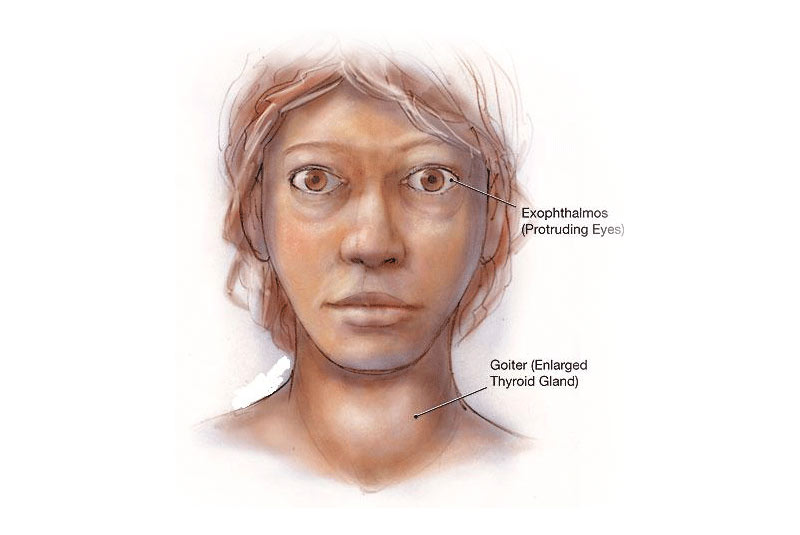Graves Disease
Your thyroid gland is an essential component of your endocrine gland system—the glands that release important hormones into the bloodstream and lymph systems.
There are a number of conditions that cause too little or too much hormones to be secreted.
Graves’ disease is a thyroid problem in which a compromised immune system leads to an excess amount of thyroid hormone secretion (hyperthyroidism).
Symptoms of an overactive thyroid caused by Graves disease include:
- Weight loss
- Anxiety
- Double vision
- Fatigue
- Exophthalmos—eyeballs that stick out
- Increased appetite
- Intolerance to heat
- Eye irritation
- Goitre
- Increased sweating
- Tremor
- Irregularities in menstrual cycle
- Irregular or rapid heartbeat
- Frequent bowel movements
- Restlessness
- Difficulty with concentration
- Difficulty sleeping
An ENT specialist treating a patient with an overactive thyroid gland may use beta-blockers in order to treat symptoms of graves disease including sweating, anxiety, and irregular heart rate. These medications will need to taken until these symptoms are alleviated. Radioactive iodine, antithyroid medications, or surgery may be necessary to treat hyperthyroidism.
Some patients may require thyroidectomy surgery—the partial or complete removal of the thyroid gland. For instance, pregnant patients with Graves disease cannot safely take antithyroid medication, but will need to have their condition treated. Thyroid surgery provides a practical solution. Individuals who are suffering from eye problems with Graves disease also respond well after a total thyroidectomy. Partial or complete removal of the thyroid gland requires patients to take replacement hormones for life since the thyroid gland will no longer be able to secrete these hormones.
If you are experiencing the overactive thyroid symptoms listed above, it is important to schedule a consultation with an ENT doctor right away before further complications develop. You will then be able to follow an appropriate treatment plan that will allow you to live your life in a greater amount of comfort.

